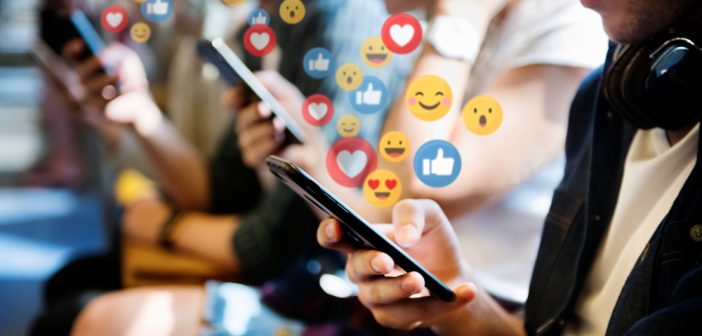If you happen to be one of the 4.4 billion people in the world who use social media, you’ve likely been told of the many ways it can harm your mental health.
However, like myself, you probably take these warnings with a grain of salt and continue your social media usage anyways. After all, how are we supposed to keep tabs on our locker buddy from fourth grade without stalking their Facebook twice a month?
If you are like me and not willing to give up your unlimited access to the lives of friends and family through their Instagram stories and Facebook blogs, here are five ways you can adjust your social media feeds so that your mental health will no longer suffer with every scroll.
Unfollow People Who Breed Negativity
Unfollowing people that make you feel bad seems pretty obvious when you say it out loud. However, being able to recognize who those people are can be tougher than it sounds. First, knock out those people who only post negative things and engage in hateful commentary. Constantly seeing negative content on your feed can often bring your mood down with it, so we recommend cutting those profiles out altogether.
A less obvious unfollow is to those whose posts give you major FOMO (fear of missing out). We are all guilty of seeing a mutual post about someone’s latest voyage to the Bahamas or girls trip to Miami and feeling pity for ourselves because our lives aren’t as exciting as our peers. Thankfully, we are not alone: About 56 percent of adults experience FOMO while using social media. BMC did a study that linked FOMO to mental illnesses such as anxiety, depression, and loneliness.
In order to avoid these fears altogether, the next time you see an account that makes you feel bad, do yourself a favor and just unfollow it. If you’re worried about the social repercussions of unfollowing an old friend, consider muting their account so you don’t have to see it on your feed.
Follow Accounts That Inspire and Uplift You
To complement your recent freedom from accounts that bring you down, consider following people and organizations that have a positive impact on your mood and outlook. Look for content creators that have uplifting messages and align with your personal beliefs. Only engage with posts that are motivational and promote personal growth so that the algorithms include more of that related content on your feed. Being around positive people can have a direct impact on your own personal positivity, and the same goes for who you follow on social media.
Engage in Positive Online Communities
There are generally two types of users when it comes to social media: active users and passive users. Active users are those that consistently engage in posts by “liking,” commenting, posting, and sharing. Passive users are those that look through social media but do not typically engage in posts. A study conducted by Libertpub suggests that passive users experience more signs of depression compared to their active counterparts.
Being an active user can help make time spent on social media feel more purposeful, while passive use is less stimulating and can often feel unproductive. By engaging in online communities such as Facebook groups, Reddit threads, or other similar online gatherings, users will have a more positive association with social media that could benefit their overall mental health.
Instead of aimlessly scrolling through your feed, engage with intention and be selective about the posts you comment on or share. Prioritize meaningful interactions that add value to your life or contribute to conversations you care about.
Minimize Information Load
Social media platforms are inundated with a constant stream of information, updates, and opinions. This information overload can overwhelm your mind, increase stress levels, and hinder your ability to focus on what truly matters. By decluttering your social media feeds, you can create a more streamlined experience, reducing the volume of content you consume and giving your mind some much-needed breathing space.
Take a moment to reflect on how much time you spend on social media and how it makes you feel. Are there specific platforms or accounts that contribute to stress or negativity? Unfollow or mute them so they no longer clutter your feed. Understanding your usage patterns and their impact on your mental well-being is an important step in cleaning up your feed in order to benefit your mental health.
Limit Your Social Media Use
This last step is definitely the hardest, but arguably the most important. Although scrolling through Instagram and Twitter can often feel like a break from the real world and is often used as a method of relaxation, consuming media for hours at a time actually takes a large toll on our mental limits. In the same way that we can become burned out working for a prolonged period of time on a long assignment or large project, spending increased amounts of time on social media can be just as tiring. When users expend excessive amounts of time scrolling through their feeds and constantly consuming content, it leads to a decrease in attention spans and higher anxiety levels. In order to combat these effects, we should limit the amount of time we dedicate to social media apps and let our brains relax a little bit more.
Taking steps to update and clean up your social media feeds can have a significant positive impact on your mental health. Unfollowing people who make you feel bad—whether due to their negative content or triggering FOMO—is a crucial first step. By surrounding yourself with accounts that inspire and uplift you, you can enhance your mood and overall outlook. Engaging actively in positive online communities rather than passively scrolling can provide a sense of purpose and fulfillment. Minimizing information overload by decoding your feeds allows your mind to breathe and reduce stress levels. Finally, limiting your social media use is vital for preventing burnout and maintaining a healthy balance in your life.
By implementing these five strategies, you can cultivate a healthier online environment that promotes your mental well-being and supports your overall happiness. Remember, it’s important to prioritize your mental health and take care of yourself in the digital age.
A version of this article was published by The Daily Herald. It has been republished here with permission.




